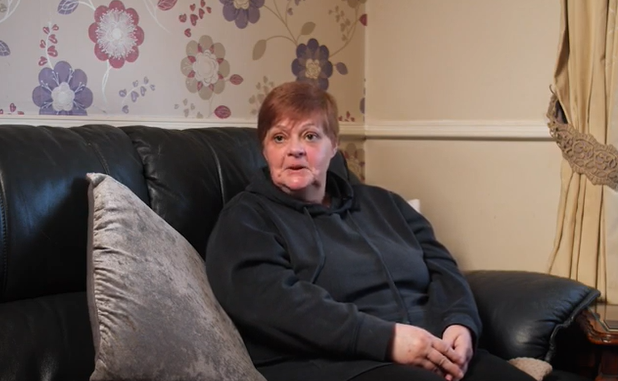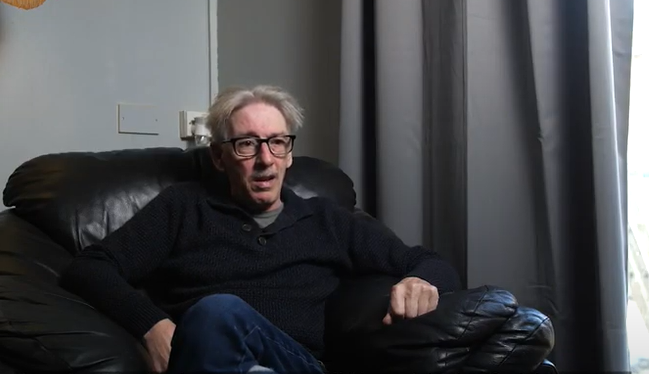Patients prescribed warm homes in NHS winter pilot that pays energy bills
Exclusive: The pilot scheme prescribed warm homes to people with chronic lung conditions
Your support helps us to tell the story
From reproductive rights to climate change to Big Tech, The Independent is on the ground when the story is developing. Whether it's investigating the financials of Elon Musk's pro-Trump PAC or producing our latest documentary, 'The A Word', which shines a light on the American women fighting for reproductive rights, we know how important it is to parse out the facts from the messaging.
At such a critical moment in US history, we need reporters on the ground. Your donation allows us to keep sending journalists to speak to both sides of the story.
The Independent is trusted by Americans across the entire political spectrum. And unlike many other quality news outlets, we choose not to lock Americans out of our reporting and analysis with paywalls. We believe quality journalism should be available to everyone, paid for by those who can afford it.
Your support makes all the difference.Low-income patients with respiratory conditions have had their energy bills paid for as part of a new NHS pilot scheme that “prescribes warmth”.
Under the Warm Home Prescription pilot, patients in Gloucestershire had their heating costs covered as a preventative measure to keep them out of hospital.
The first stage of the pilot was run between December 2021 and March 2022, but details of the scheme can only now be revealed.
28 patients who had cold-sensitive health conditions had money credited to their energy accounts, with an average of £647 spent per person.
The scheme is now being expanded for this winter, with up to 150 people across Gloucestershire set to receive support. They will have their energy bills paid between November 2022 and March 2023.
The NHS paid for the running costs of the initial pilot but were able to use the government’s Housing Support Fund to pay for patients’ energy bills.
The Housing Support Fund will also fund the expanded scheme.
The initial scheme, which was piloted by not-for-profit Energy Systems Catapult and the NHS, found that recipients were healthier, less stressed about bills and less likely to visit GPs or the hospital.
Cold homes cost the NHS in England £857m each year, according to the Building Research Establishment. In Gloucestershire, where the pilot took place, hospitals spend £2.7m a month on treating respiratory conditions.

One person who had been supported on the scheme, Deborah, said that last winter had been the first winter “in a very, very long time” that her husband, who has chronic obstructive pulmonary disease (COPD), has felt warm.
“For me, I had to choose between food and heating, and obviously heating had to come first to make sure Andrew was warm.
“Obviously with him having emphysema and COPD, if he gets pneumonia, it means that he can become seriously ill and end up in hospital.
“I can’t believe how much it’s changed us. Andrew is healthy and it’s been the first winter in a very, very long time that my husband has been able to be warm, and that’s huge thing for us,” she said.
Another patient on the pilot, Darran, said: “I suffer from extreme emphysema and I’m prone to chest infections. A cold home don’t help at all, not when you have respiratory problems.”
Speaking about the impact of the scheme, he said it had been “amazing”, adding: “Heating has never been off. I haven’t had to find the money to put on the gas or put the heating on, because you’ve supplied it for me. It’s just been brilliant.”

To be eligible for the expanded Gloucestershire scheme this winter, people must have a diagnosed chronic lung condition, such as emphysema, chronic bronchitis and bronchiectasis.
They must also be either under 60 and in receipt of free NHS prescriptions, or over 60 and be struggling to pay their heating bills.
“We want to stop people from becoming unwell and help them to stay healthy at home in housing that is safe and warm,” Dr Hein Le Roux, from the NHS in Gloucestershire, said.
District nurses and complex care teams, supported by GPs, will work together to identify eligible patients and prescribe them a warm home.
Energy charity Severn Wye helps to credit the money to their accounts and also gives each patient a heating plan. In the initial pilot, some patients had better heating controls added into their homes to increase energy efficiency, for example.
Energy Systems Catapult, who developed the Gloucestershire scheme, are also launching Warm Home Prescription schemes in the Tees Valley and Aberdeenshire.
“If we buy the energy people need but can’t afford, they can keep warm at home and stay out of hospital,” Dr Matt Lipson, spokesperson for Catapult, said.
“That would target support to where it’s needed, save money overall and take pressure off the health service.”
Government officials in the Treasury reportedly considered a similar idea in August, proposing that GPs prescribe people cash to pay their energy and heating bills.
Labour criticised the plans at the time, with shadow health secretary Wes Streeting saying that the Tories had “lost the plot on the cost of living crisis.”
The British Medical Association said that they “completely reject” the policy and argued that “overwhelmed” GPs did not need “this addition to their workload.”
Dr Hein Le Roux, a GP involved in the Gloucestershire pilot, said the scheme allowed health professionals to be “much more proactive”, adding: “It is much better to stop someone getting unwell and keep them well.”
This article was amended on the day of publication. It originally stated that the NHS paid people’s energy bills, but that was not the case. Although the NHS paid the running costs of the initial pilot, the cost of people’s energy bills came from the Housing Support Fund.



Join our commenting forum
Join thought-provoking conversations, follow other Independent readers and see their replies
Comments